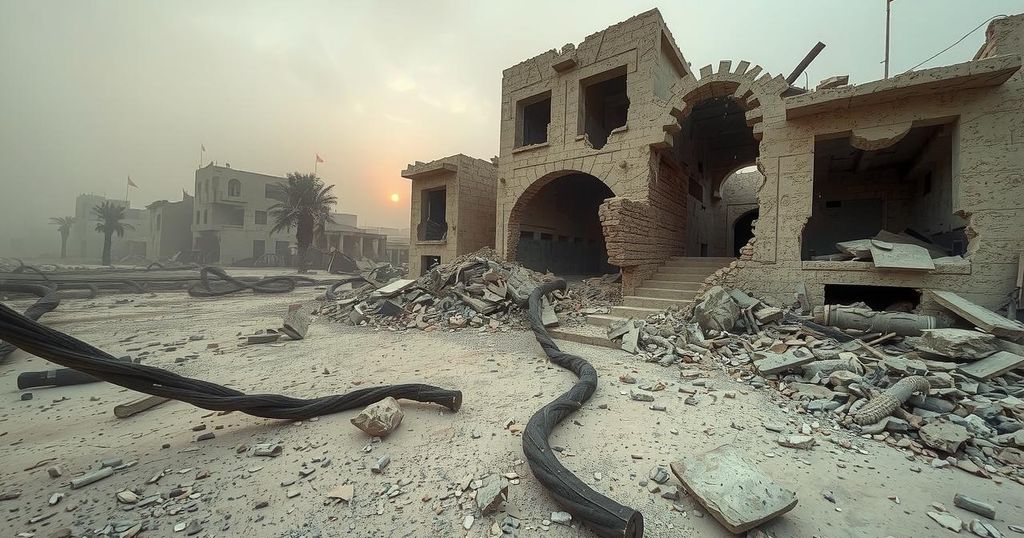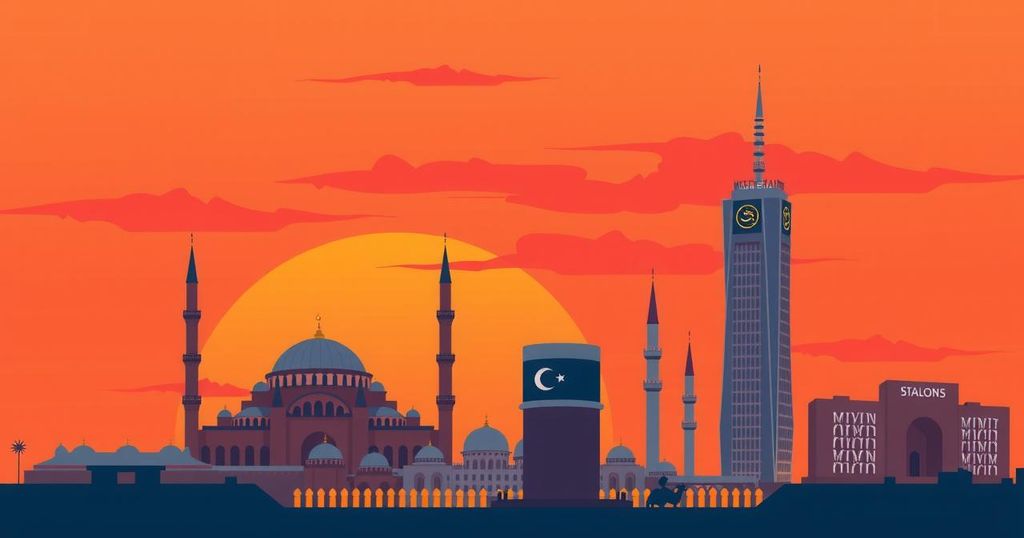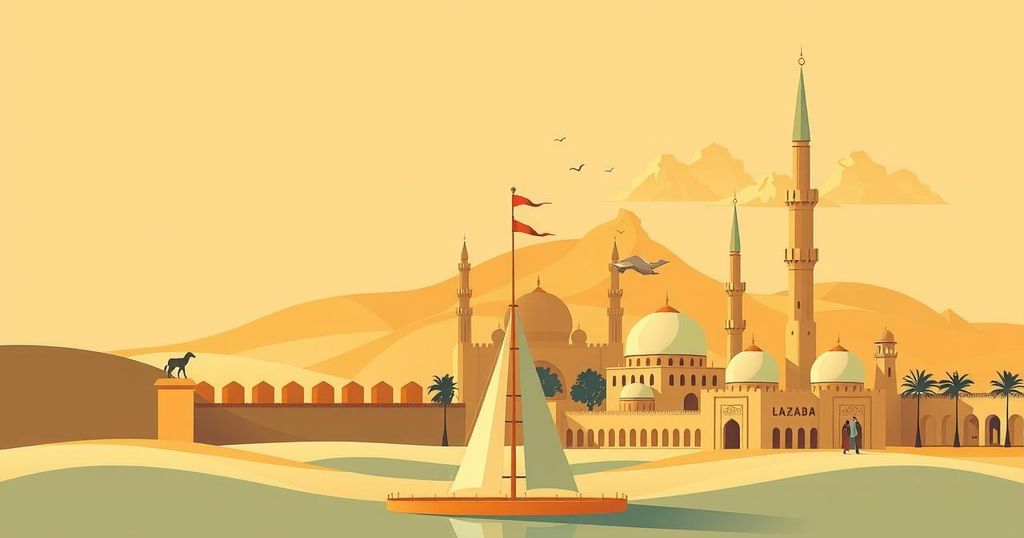This article highlights the intensifying repression by the Iranian regime amidst economic crises and significant dissent. Reports indicate a crackdown on political opposition, economic corruption, and widespread human rights abuses, including the denial of medical care for prisoners. International responses, including Panama’s actions against sanctioned vessels and U.S. sanctions on Hezbollah’s financial networks, reflect global efforts to address Iran’s destabilizing activities. Resistance movements within Iran have shown remarkable growth despite oppressive conditions.
On March 29, 2025, the Iranian regime faces mounting pressure as numerous reports highlight its repressive tactics and economic failures. Senior officials, including former Speaker Nategh Nouri, have previously acknowledged the precariousness of their rule. The regime is intensifying its suppression of dissent as a means of clinging to power amidst economic turmoil and a faltering international standing.
Repression in Iran is a long-standing issue, dating back to the Shah’s regime, where SAVAK was notorious for its brutal tactics. Post-revolution, SAVAK was transformed into the Ministry of Intelligence (MOIS), yet it retained its harsh methods. The regime’s oppressive history continues to loom large over contemporary Iran as it grapples with increasing dissent.
In a significant move, Panama has revoked the registration of 128 ships linked to the shadow fleet supporting illicit oil exports from Russia and Iran. Ramón Franco from the Panama Maritime Authority confirmed that this crackdown is part of a broader international push to enforce sanctions against entities violating international norms related to energy trade.
The U.S. Treasury has uncovered a sanctions evasion network tied to Hezbollah and Iran’s Islamic Revolutionary Guard Corps. The network, comprising five individuals and three companies, reportedly funnels millions into Hezbollah’s terrorist activities through various front businesses, facilitating oil smuggling and other revenue-generating ventures.
The PMOI Resistance Units, representing opposition to the Iranian regime, have reported over 39,000 anti-regime activities within the past year, reflecting a remarkable surge in their efforts against the oppressive government. These activities demonstrate not only resilience but also a growing movement across various provinces.
An Iranian regime report concerning the violent suppression of protests in 2022 attempts to absolve the government of responsibility for human rights abuses. It attributes the unrest to external sanctions rather than acknowledging the underlying issues of corruption and oppression within the state, thereby perpetuating a false narrative of accountability.
Economic conditions in Iran are dire, with Majidreza Hariri highlighting the rampant corruption that results in an estimated $25 billion being smuggled out of the country each year. Wealthy citizens are increasingly relocating their assets abroad in response to the unstable economic landscape, further aggravating the national financial crisis.
Political prisoner Varisha Moradi, sentenced to death, is reportedly being denied critical medical treatment for her deteriorating health in Iran’s Evin Prison. The refusal of medical care reflects a disturbing trend of neglect towards political prisoners, raising significant concerns among human rights advocates.
Recent reports indicate that Iranian crude oil tankers are stranded near Malaysia, indicating potential challenges in Iran’s oil exports to China. With over 10 tankers halted and no buyers, this situation points to a deeper slowdown in Iran’s oil shipping capabilities amidst continued international sanctions.
Supreme Leader Ali Khamenei’s rejection of U.S. negotiations underscores the regime’s intent to maintain its nuclear ambitions under the guise of diplomacy. The Iranian regime views international discussions as opportunities to project power while engaging in deceitful practices concerning its nuclear agenda, as previously revealed by the National Council of Resistance of Iran (NCRI).
In Luxembourg, supporters of the PMOI organized an exhibition to raise awareness of the pervasive human rights violations in Iran, particularly against political prisoners facing execution. The event received strong backing from the Iranian community and focused on empowering Iranian women’s resistance against the regime’s oppressive measures, reinforcing the call for freedom and justice in Iran.
In conclusion, the Iranian regime’s ongoing repression, economic decline, and human rights violations are indicative of a government struggling to maintain its grip on power amidst widespread dissent. The recent international responses, particularly from Panama and the U.S., alongside growing opposition movements within Iran, highlight a critical juncture in the country’s history. As the crackdown on dissent continues, the voices advocating for freedom and justice remain resolute, demonstrating the resilience of those challenging the regime.
Original Source: www.ncr-iran.org




